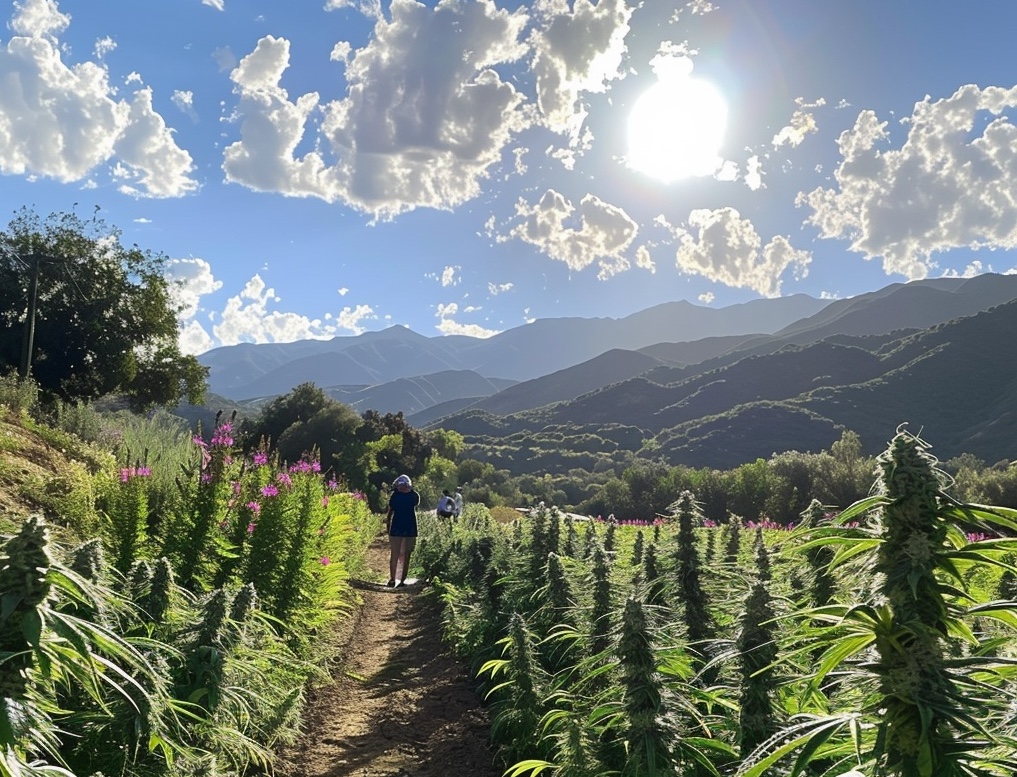Posted by TL Knowledge Team on 19th Mar 2024
The Terroir of Cannabis: How Geography Shapes Flavour, Aroma and Effects

In the world of wine, the concept of "terroir" — the way a region's climate, soils, and aspect affect the taste of wine — is well established. Similar principles apply to cannabis, where geography plays a pivotal role in determining the flavor, aroma, and potency of the plant, particularly through its terpenes. Terpenes are volatile aromatic compounds found in many plants, including cannabis, contributing significantly to their scent and taste profiles, as well as potential therapeutic effects.
Cannabis plants grown in different parts of the world exhibit unique characteristics that can be attributed to their geographical environment, akin to the terroir in viticulture. Factors such as sunlight, temperature, humidity, and soil composition not only influence the growth and morphology of cannabis plants but also affect the synthesis and concentration of terpenes and cannabinoids within them.
There is growing anecdotal and academic evidence to support this, showing that environmental conditions play a crucial role in the terpene profile of cannabis. For instance, the terpene content in cannabis could vary significantly depending on the plant's growing conditions. This variability can lead to distinct flavours and aromas, ranging from citrus and pine to earthy and skunky, much like how different regions produce wines with unique flavour profiles.
Moreover, the interaction between the plant's genetics and its environment (genotype by environment interaction) is crucial. Just as grape varieties are carefully matched to their growing sites in viticulture to produce the best wine, the same principle applies to cannabis cultivation. Strains of cannabis that are genetically predisposed to produce specific terpenes will do so more effectively when grown in conducive environments.
The Parallel with Wine Terroir
The agricultural and botanical principles that underlie the concept of terroir are widely accepted and apply to many crops, including cannabis. These principles suggest that environmental conditions (such as climate, soil type, altitude, and even the microbiome of the soil) influence the development of secondary metabolites in plants, which in cannabis includes terpenes and cannabinoids.
Just as the soil composition and climate of a region can influence the taste and aroma of wine, similar environmental factors can alter the terpene profile of cannabis. For example, the same cannabis strain grown in the sunny, arid climate of Southern California may develop a different terpene profile than if it were grown in the cooler, wetter conditions of British Columbia.
These differences are not merely academic; they have practical implications for both consumers and producers. For consumers, understanding the geographical origin of a cannabis strain can provide insights into its potential flavor and effects. For producers, optimising growing conditions to enhance desirable terpene profiles can lead to higher-quality products.
Towards a Terroir-Based Classification for Cannabis?
While direct, focused research on cannabis terroir is still developing, the foundational principles of botany and agriculture support the notion that geography significantly impacts cannabis terpene profiles and other traits.
The idea of classifying cannabis strains based on their geographical origin and resulting terpene profiles is an intriguing prospect. It suggests a future where consumers could select cannabis not just by strain, but by the terroir, much like choosing a fine wine. This classification could also extend to the medicinal use of cannabis, with terpene profiles tailored to specific therapeutic effects.
However, the application of terroir to cannabis is still in its infancy, and further research is necessary to fully understand the complex interactions between the plant, its environment, and the resulting terpene synthesis. As the cannabis industry continues to evolve, the concept of terroir could play a significant role in shaping its future, offering a new dimension of appreciation for this wondrous plant.

